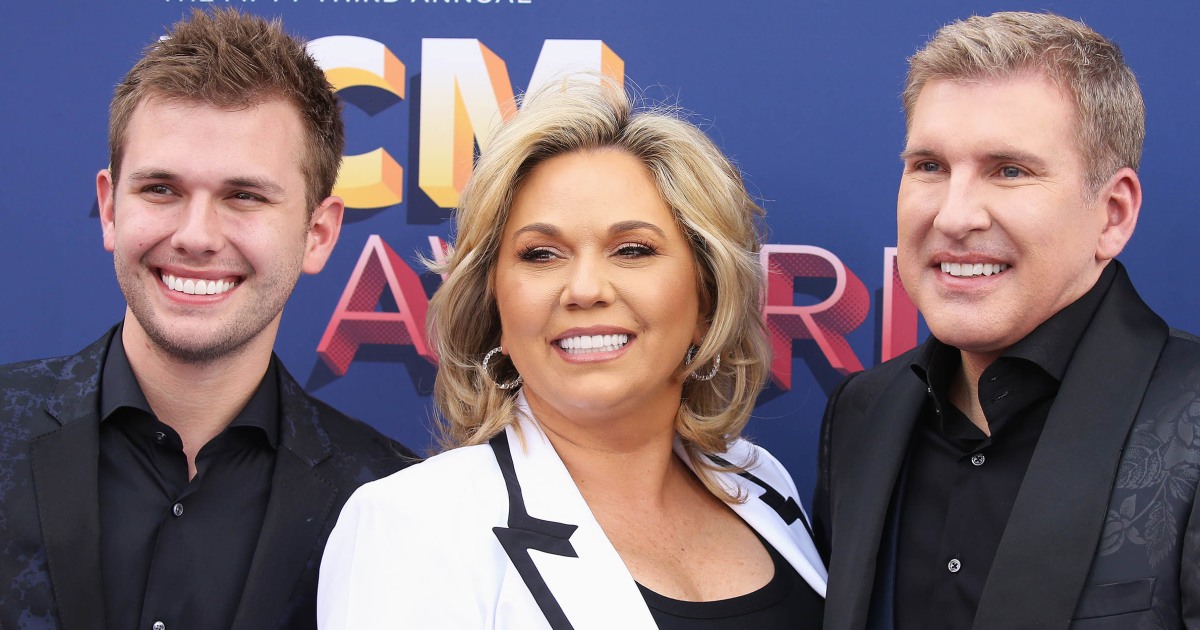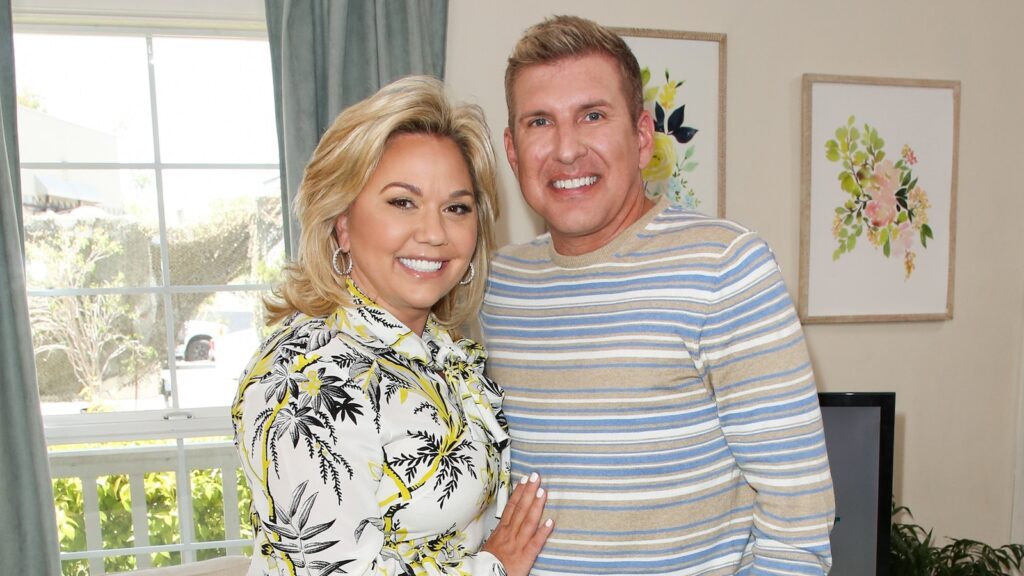In a surprising turn of events, President Donald Trump has officially pardoned Todd and Julie Chrisley, the reality television stars previously convicted of defrauding banks and evading taxes totaling over $30 million. The pardon, announced by the White House on Wednesday, marks a significant chapter in the ongoing saga of the Chrisleys, known for their lavish lifestyles showcased in the popular show “Chrisley Knows Best.” This move has sparked a wide range of responses from the public, media, and legal experts.
The news comes after Savannah Chrisley, the couple’s daughter, actively campaigned for the pardon and expressed gratitude towards Trump during her speech at the 2024 Republican National Convention. She detailed her conversation with Trump, where he informed her about the pardon signing while offering her family words of encouragement.

The Background of the Chrisley Case
Todd and Julie Chrisley rose to fame in 2014 with their reality television series that documented their extravagant lifestyle as wealthy real estate moguls. However, behind the glitz and glamour lay serious criminal allegations. In November 2022, the couple was sentenced to a combined 19 years in prison; Todd was handed 12 years while Julie received seven, along with 16 months of probation and a hefty restitution of $17.8 million.
Federal prosecutors accused the Chrisleys of manipulating bank systems by submitting false documents and statements to acquire loans under false pretenses. Despite their public persona of success driven by hard work, the prosecution characterized them as career swindlers who relied on deceit, lying to banks and dodging tax obligations.
Trump’s Decision to Grant Clemency
President Trump, long known for his clemency decisions that often ignite political discussions, justified the pardon by asserting that the Chrisleys were victims of what he describes as an unfair justice system. Trump noted in a call with Savannah that their treatment was “pretty harsh” and that he hoped to rectify this by ensuring their release.
In a statement from the Oval Office, Trump articulated his commitment to providing opportunities for “well-deserving Americans” who he believes have been unduly targeted by the justice system. This pardon not only signifies a personal viewpoint from Trump but also aligns with a broader narrative surrounding his administration’s approach to criminal justice and clemency.
Reactions from the Chrisley Family and Beyond
Reactions to the pardon have poured in from various family members and the public. Chase Chrisley, the couple’s son, expressed his overwhelming gratitude towards Trump, stating, “I’m beyond thankful to finally have my parents back home and my family together again!” His sentiments were echoed by Kyle Chrisley, Todd’s estranged son, who shared his excitement upon hearing the news.
However, not everyone in the family appears to support the decision unequivocally. Lindsie Chrisley, Todd’s daughter from a previous marriage, offered a more neutral perspective through her attorney, suggesting that while presidential pardons can vary in fairness, “this time I think he got it right.” This indicates a cautious approach to the excitement within the family about the legal developments.
The Broader Implications of Trump’s Clemency
The timing and nature of this pardon reignite discussions on political clemency and its implications in the United States. Trump’s history with pardons has often been marked by political motivations, signaling a potential influence on public perception and future judicial considerations.
This recent action comes on the heels of notable clemency decisions made by both Trump and President Biden, each shaping public discourse about justice, fairness, and accountability within the American legal framework. Historical patterns of presidential pardons highlight tensions between public opinion and political maneuvering, raising questions on whether certain individuals have more access to clemency than others, often based on their celebrity status or political connections.
Public and Media Response
The media’s portrayal of the Chrisley case and its resolution through a presidential pardon has sparked debate, particularly around issues of inequality in the legal system. Critics argue that celebrity status can disproportionately influence outcomes, overshadowing the examples of justice that would typically apply to the average citizen. Proponents of the pardon, however, argue that the justice system can be harsh and often unforgiving, meriting intervention in specific cases.
The Future for the Chrisleys
As Todd and Julie Chrisley prepare for their release, questions abound regarding their future both personally and professionally. Following their time in prison, there is speculation about whether they will return to reality television and how their brand will recover post-conviction. The Chrisleys’ saga serves as a cautionary tale about the complexities of fame and its accompanying risks, especially when intertwined with legal battles.
While they may plan to resume their lives and careers, the scrutiny surrounding their past will likely persist. America’s fascination with celebrity culture and legal drama ensures that the public continues to watch their moves closely. This presents both an opportunity for a comeback and the challenge of reconciling their past actions with the public’s perception.
Conclusion
The pardoning of Todd and Julie Chrisley by President Trump has reignited discussions on the nature of justice and the influence of fame within the legal system. As reactions from family members and the public vary, the broader implications of this decision remain to be seen. This incident not only highlights the potential for presidential clemency to impact lives but also the ongoing struggle for fairness in America’s judicial landscape.
Undoubtedly, this story is one to watch, as the Chrisleys navigate the complex interplay between celebrity status, legal challenges, and public perception in the coming months.

